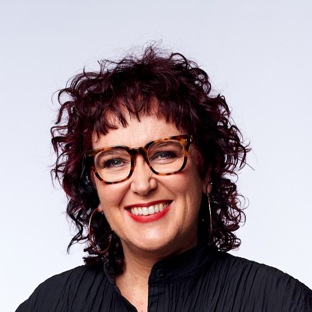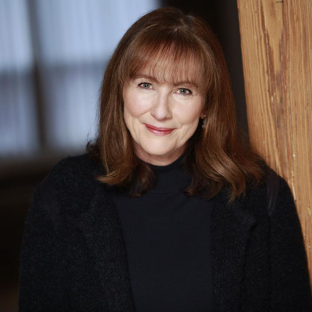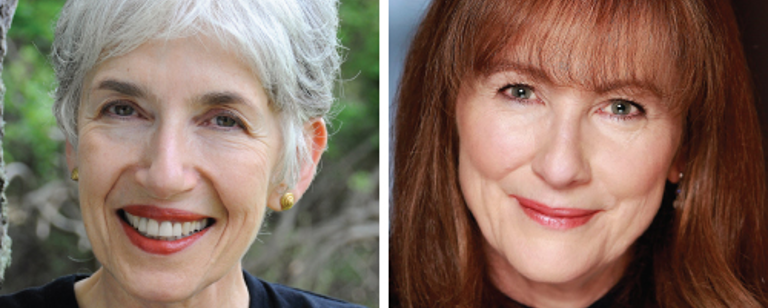Who says science is dominated by men? Well, it might be, but these two remarkable women – Barbara Arrowsmith-Young and Dava Sobel – are at the top of their fields. Barbara Arrowsmith-Young recognised the potential of neuroplasticity – the ability to rewire the brain – long before it became the latest hot concept. And Dava Sobel’s writing brings scientific discovery thrillingly to life: her readers come for the stories and stay for the science.
Dava Sobel
Dava Sobel has always been fascinated by science and the stars. A former science reporter for the New York Times, she became a publishing supernova in 1995 with the publication of her page-turning popular science bestseller, Longitude. Her fourth book, A More Perfect Heaven, blends narrative history, science and the techniques of drama to tell the story of a theory that literally reversed the way we see the world: Copernicus’s discovery that the earth revolves around the sun.
Dava says she is drawn to astronomy ‘because I love the big questions. Astronomy asks some very big questions, and I’m drawn to it for that, and also just the beauty of it.’
She has wanted to write about Copernicus since even before Longitude: ‘He’s the person who turned the universe inside out, and I’ve been interested in him forever.’
Barbara Arrowsmith-Young
Barbara Arrowsmith-Young turned her life-defining learning disabilities into an unlikely asset. Unable to process language or decode symbols, she compensated with her fierce determination to learn, fuelled by a formidable memory. In graduate school, she chanced on research that held the key to reprogramming her own brain. This was in the 1970s and 80s, before neuroplasticity became a widely accepted fact. Her pioneering Arrowsmith Program has since helped countless children and adults with learning disabilities to unlock their potential.
‘In most traditional special education programs, the premise is that the learner’s fixed. The learner is the learner, with their strengths and weaknesses,’ says Barbara. ‘The premise of our work is, we’re going to take this learner, and we’re going to change the capacity of the learner.’
Norman Doidge shared Barbara’s story in his bestseller The Brain That Changes Itself; she speaks for herself in her new book, The Woman Who Changed Her Brain.
Featuring

Robyn Williams
Science journalist and broadcaster Robyn Williams presents Radio National’s The Science Show and Ockham’s Razor.
Although he graduated with a Bachelor of Science (Honours) in England, Robyn admits to spending as much time acting as studying. Early in his career he made guest appearances in The Goodies, Monty Python’s Flying Circus and Doctor Who, and stood in for Tom Jones for four months in his TV series.
In 1993, Robyn was the first journalist elected as a Fellow Member of the Australian Academy of Science. He was appointed AM in the 1988 Australian Bicentenary honours list and in the same year received honorary doctorates in science from the University of Sydney and Macquarie and Deakin Universities. The ANU awarded him a doctorate of law, and he is a visiting professor at the University of NSW and an adjunct professor at the University of Queensland.
A Reuters fellowship at Oxford University allowed him time to write his autobiography, And Now for Something Completely Different.
Robyn has written more than 10 books, the latest being a novel, 2007: a true story waiting to happen.

Natasha Mitchell
Natasha Mitchell is a multi-award-winning journalist, radio presenter, podcaster, and audio storyteller. She is host of the ABC Radio National's flagship Big Ideas program and podcast, was founding host and producer of the ...
Dava Sobel
Dava Sobel is the author of Longitude, Galileo’s Daughter, The Planets, and A More Perfect Heaven. Interested in astronomy since childhood, she renewed and strengthened her interest under the influence of Carl Sagan, whom she first interviewed in 1972.
While on assignment as a science reporter for the New York Times, Sobel spent 25 days as a research subject in a study of human circadian rhythm. The protocol prevented her from knowing what time it was throughout her participation. Later her book Longitude, a surprise bestseller in several countries, emphasized the importance of precision timekeeping for position finding.
Sobel has served as contributing editor for several magazines, judged numerous book prizes (including the Pulitzer) and taught science writing at the college level. She continues to write articles about current research, but looks forward to a new book project about women in astronomy. An asteroid has been named for her: 30935davasobel.

Barbara Arrowsmith-Young
Barbara Arrowsmith-Young is the founder of the Arrowsmith Program, a suite of cognitive programs based on the principles of neuroplasticity which change the brain’s capacity to learn. Her book, based on her own experiences, is The Woman Who Changed Her Brain: And Other Inspiring Stories of Pioneering Brain Transformation.
The genesis of the Arrowsmith Program of cognitive exercises lies in Barbara’s journey of discovery and innovation to overcome her own severe learning disabilities.
Barbara holds a B.A.Sc. in child studies from the University of Guelph and a master’s degree in school psychology from the University of Toronto.
